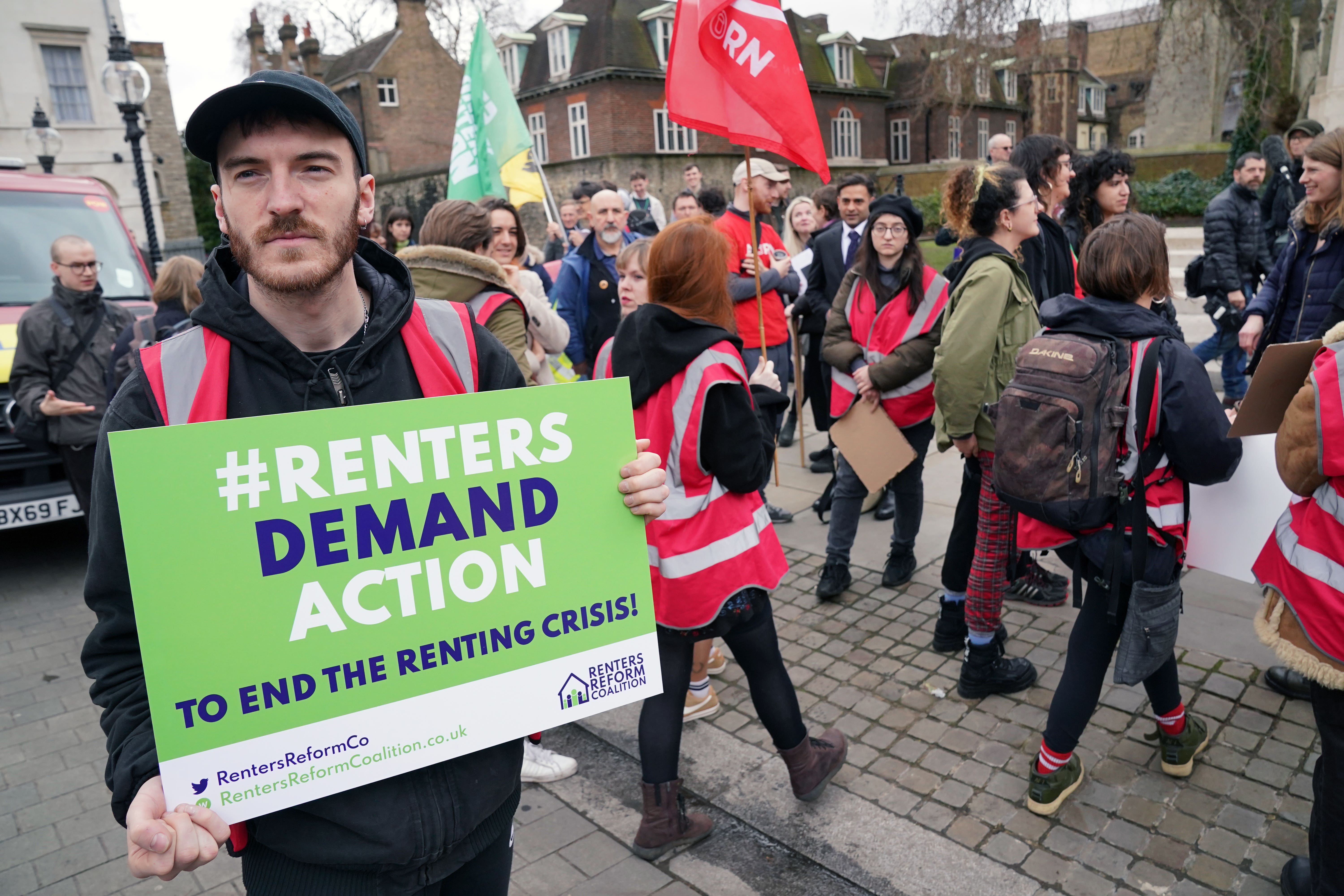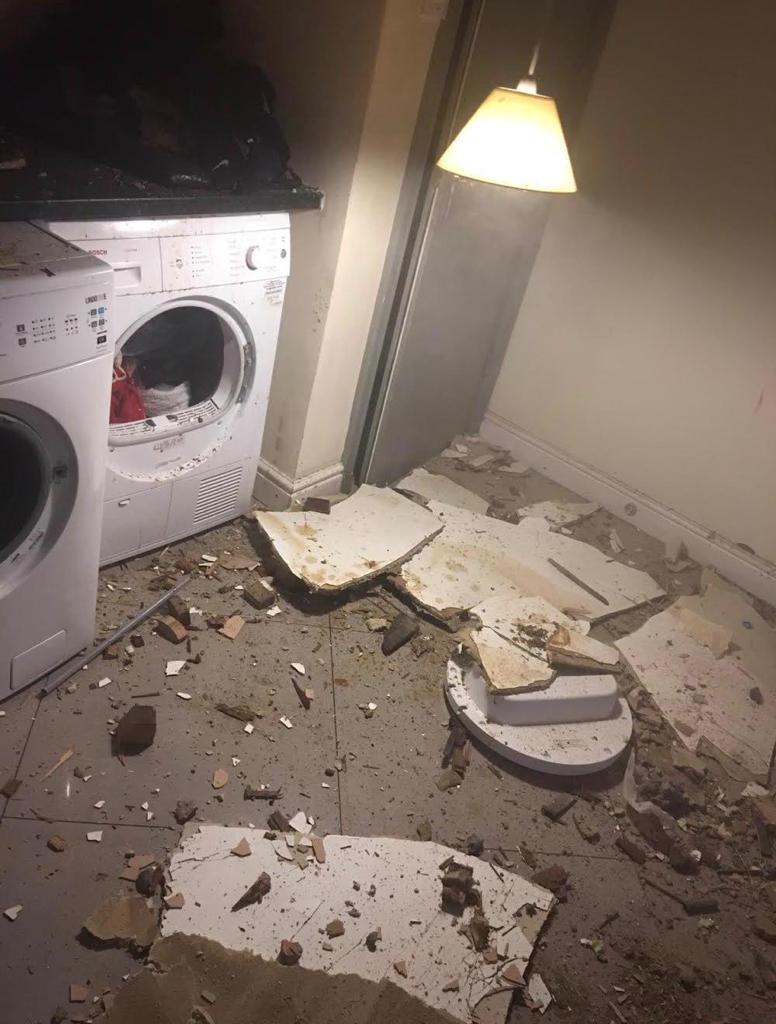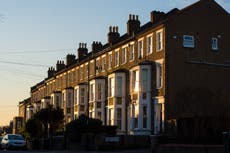Revealed: Scandal of renters facing deadly hazards in their homes
Exclusive: One in eight privately rented homes poses a serious health hazard, as government urged to clean up ‘Wild West’ sector by going after ‘slum’ landlords
Tenants are being subjected to shocking living conditions, with new figures revealing that one in eight privately rented homes poses a potentially life-threatening hazard to health.
Around 615,000 properties contained serious defects such as damp, mould, pollutants, structural flaws and fire hazards that put residents’ health at risk last year, an increase of 50,000 compared to the previous year.
Campaigners said the figures expose the increasingly horrendous conditions faced by tenants despite soaring rents – accusing “slum” landlords of exploitation and “profiteering from unsafe homes”.
The shocking statistics come after a series of investigations by The Independent exposed the impacts of Britain’s worsening housing crisis, including Black and Asian tenants being forced to bear the brunt of awful conditions – from disrepair to forced evictions – and a “shameful” lack of social housing, with more than half of local authorities failing to build a single council house last year.
It follows the death of toddler Awaab Ishak, which was found to have been caused by “extensive mould” in his family’s flat in Rochdale. His death prompted outrage about families being left in uninhabitable conditions by property owners.
Labour has vowed to end the “shocking” and “unacceptable” conditions endured by tenants – accusing the Tory government of failing to control landlords in the “Wild West” private sector.
Category 1 hazards – deemed the most serious, with the potential to cause death or loss of limb – are found in 14 per cent of private rented homes, according to Labour analysis of the latest English Housing Survey, which covers 2021 to 2022. This figure is up from 13 per cent the previous year.
Around 990,000 privately rented homes (23 per cent) fail to meet the “decent homes standard” according to the 2021-22 data – a higher proportion than in the social rented sector (10 per cent) and homes that are owner-occupied (13 per cent).
And around 11 per cent of privately rented homes contain damp, according to analysis of the latest annual figures – an increase on the 10 per cent figure for the previous year and a significant jump from the 7 per cent seen in 2019-20.
“The private rented sector increasingly resembles the Wild West,” Lisa Nandy, the shadow housing secretary, told The Independent. “Far too many young people and families are being forced to live in shocking, unacceptable conditions, while at the same time paying ever more extortionate rents.”

Ms Nandy vowed that a Labour government would introduce a “powerful” new renters’ charter to enforce the decent homes standard in the private rented sector, as well as bringing in a new code of practice for letting agents in an effort to crack down on the issue.
Separately, figures obtained by The Independent suggest that mould and damp problems are getting worse. The number of complaints about these issues to the Housing Ombudsman Service has spiked by 35 per cent.
The watchdog has received 5,398 complaints about damp, mould and leaks in the past year, up from 3,530 the year before. A total of 632 complaints were upheld, up from 456 the previous year.
Earlier this year, housing secretary Michael Gove described the death of two-year-old Awaab as an “unacceptable tragedy” – vowing to make sure landlords are “held to account” over unfit homes.

In May, The Independent revealed that a four-year-old girl, Zainab Hamid, had been hospitalised after living in a mould-ridden flat. She and her family were moved from the Westminster dwelling, run by social landlord the Peabody Trust, following our investigation.
Tenants told The Independent about serious health risks they had suffered at the hands of private landlords. Sinthia Arefin was hospitalised in November 2018 after the ceiling fell on her in the kitchen of a flat that was rented from a private landlord by Newham Council as temporary accommodation.
Ms Arefin said her life has been irrevocably changed since the accident. She still suffers as a result of her injuries, and she has been unable to continue her work as an artist.
“The kitchen ceiling was damp from a water leak in the room above, and the landlord didn’t fix it,” she said. “The ceiling fell on my head. I was taken to hospital by the ambulance.”
Ms Arefin said: “I had an injury in my neck disc. I was bedbound for several months and I still walk with a stick even now. I still have bad pain in my back, extreme headaches and vertigo because of how it fell on me.”
She added: “It can change a person’s life in a way that they would have never thought of in their worst nightmares.”

Liam Miller of the London Renters Union said that recent rent rises are “shocking” considering the difficulty tenants have getting landlords to carry out repairs. “Exploiting tenants while leaving homes in despair is widespread – the term ‘slum landlord’ is appropriate in too many places.”
The campaigner said that the government needs to give councils the resources to go after bad landlords, and allow harsher penalties if landlords fail to comply with the rules.
Dan Wilson Craw, deputy director at campaigning organisation Generation Rent, said the worst slum landlords are “leaving people in unsafe homes” while making rents increasingly unaffordable.
“Some landlords are profiteering by putting up prices while ignoring their tenants’ complaints about problems and bad conditions,” said the campaigner. “It can be very difficult to get landlords to fix things.”
Polly Neate, chief executive of housing charity Shelter, said renters “should not be forced to live in homes with hazards that pose a real danger to them”.

Campaigners hope the Renters’ Reform Bill – the legislation currently moving through parliament that will ban no-fault evictions – will allow tenants to challenge slum landlords without losing their homes.
The latest figures show how vital changes could be. No-fault eviction court proceedings in England have hit their highest level in six years. Almost 7,500 no-fault eviction claims were brought before judges between April and June – up 35 per cent on the same period last year.
The Labour Party and housing campaigners remain frustrated at the Tories’ failure to include a decent homes standard for the private rental sector in the Renters’ Reform Bill – though the government has pledged to introduce one “at the earliest opportunity”.
No 10 has also vowed to launch a consultation on a new damp and mould standard as part of the wider review of the decent homes standard.
A spokesperson for the Department for Levelling Up, Housing and Communities said: “Everyone deserves a decent home that is free from damp, mould and overcrowding.”
They added: “That is why we are committed to reducing the number of non-decent rented homes by 50 per cent by 2030, as well as introducing [a] decent homes standard to the private rented sector that will protect millions of renters for the first time.”
A Newham Council spokesperson said the council was committed to driving up standards in all accommodation, adding: “We have a robust policy setting out what we expect of private sector temporary accommodation landlords.”
Join our commenting forum
Join thought-provoking conversations, follow other Independent readers and see their replies
Comments



Bookmark popover
Removed from bookmarks